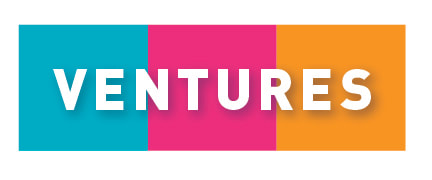|
As a parent, I know firsthand that nagging and constant question of “am I doing enough?” We strive to teach our children everything from reading to saying “please” and “thank you.” And yet, many of us leave out one of the key lessons in life that they will use every day – money.
Yes, money. If we don’t teach them who will? I rather it not be a pay day lender during college or a having to deal with credit card debt that leads them to have their first experience around a financial system. As uncomfortable as we may be around the taboo topic of money, we have to take the plunge and talk about it. Luckily for us, Moneyasyougrow.org provides a user friendly guide of 20 things kids should know to have financially smart lives. And even better, many financial institutions offer great child savings accounts. In fact, children with a college saving accounts are three times more likely to attend college and youth with savings accounts have an amazing 176% higher chance to better manage times of uncertainty – regardless of the balance on those accounts. Because a bank account is more than a bank balance, it is a vehicle to practice of great financial habits. And habits, as we know, are better taught early one in our lives. I’m committed to seeing our youth be banked and financially capable before they graduate high school. Heck, even before they enter middle school. Because that is economic justice and that is how we can start to create an inclusive economy. Let’s get started.
0 Comments
There is a lot of attention around the “new” version of capitalism. The latest social venture, B Corps, or sharing economies are enough to get a few Ted talks and NPR stories booked. People are enthralled around the possibility of doing good while holding on to capitalism, and in essence an economic model, as the best way to achieve it. It may seem crazy to suggest it, especially as I’m not an economist and I'm vocal advocate around creating an inclusive economy in our region, but to put the well being of world at the hands of an economic model puts the economy above and beyond all else - it becomes the proxy for wellbeing. Money equals happiness. The push to create “economic growth” becomes key. The bottom line becomes…the bottom line. It facilitates the privatization of the common good because it presumes that businesses will share that common good. Even as history has shown that capitalism by itself has no moral guides. It ignores the fact that you cannot holistically measure the well being a population just by the numbers, not even the much talked about Gross National Happiness (GNH) index can claim that. Capitalism does not address system issues, such racism or gender bias. Even couching it as “sustainability” or “social responsibility” assumes that no real systems will be changed, but rather that the system will be able to continue. No word of equity in there, for people or the earth. Furthermore, there is little to no accountability of any of the social good ventures, much less acclaimed philanthropy. Both function under the very few hands of those that have complete autonomy to determine what and who is important enough to receive support. Capitalism is neither good or bad, it is just a model. A model that tilts to the gathering of wealth to some and not others, and that compounds over time, just like interest (wealth gap, anyone?). And by basing our entire focus of wellbeing on it, it leads to all other vehicles of power being dictated by it (e.g. political parties). No amount of good intentions by a few companies and individual CEO’s are ever going to overcome that system and incentives. And so people matter. People matter because who we are is not captured in a supply and demand curve. And to create the world we seek, people need to be able to collectively work together to move the direction and creation of a new system. One that balances the role of our economic drivers with the accountability our government can provide. People tooled with education can hold both our businesses and government accountable to those values. We need to go to school, get water, shelter health, free from the charity of what the business sector deems we need. People matter because it is people that will challenge the system, change the system, and in that create a bottom line that is more about the human experience we all share than about the the model that puts money in the bank. |
Archives
March 2023
Categories |

 RSS Feed
RSS Feed